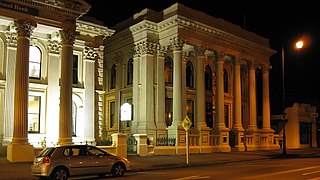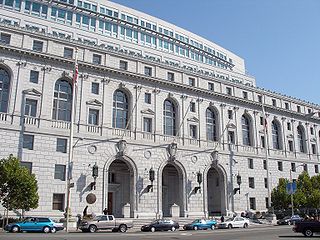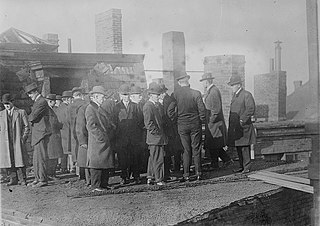
A non-disclosure agreement (NDA) is a legal contract or part of a contract between at least two parties that outlines confidential material, knowledge, or information that the parties wish to share with one another for certain purposes, but wish to restrict access to. Doctor–patient confidentiality, attorney–client privilege, priest–penitent privilege and bank–client confidentiality agreements are examples of NDAs, which are often not enshrined in a written contract between the parties.
A subpoena duces tecum, or subpoena for production of evidence, is a court summons ordering the recipient to appear before the court and produce documents or other tangible evidence for use at a hearing or trial. In some jurisdictions, it can also be issued by legislative bodies such as county boards of supervisors.

Discovery, in the law of common law jurisdictions, is a pre-trial procedure in a lawsuit in which each party, through the law of civil procedure, can obtain evidence from the other party or parties by means of discovery devices such as interrogatories, requests for production of documents, requests for admissions and depositions. Discovery can be obtained from non-parties using subpoenas. When a discovery request is objected to, the requesting party may seek the assistance of the court by filing a motion to compel discovery.
A shield law is legislation designed to protect reporters' privilege. This privilege involves the right of news reporters to refuse to testify as to the information and/or sources of information obtained during the news gathering and dissemination process. Currently, the U.S. federal government has not enacted any national shield laws, but most of the 50 states do have shield laws or other protections for reporters in place.
Branzburg v. Hayes, 408 U.S. 665 (1972), was a landmark decision of the US Supreme Court invalidating the use of the First Amendment as a defense for reporters summoned to testify before a grand jury. The case was argued February 23, 1972, and decided June 29 of the same year. The reporters lost their case by a vote of 5–4. This case is cited for the rule that in federal courts, a reporter may not generally avoid testifying in a criminal grand jury, and is one of a limited number of cases in which the U.S. Supreme Court has considered the use of reporters' privilege.
Tortious interference, also known as intentional interference with contractual relations, in the common law of torts, occurs when one person intentionally damages someone else's contractual or business relationships with a third party, causing economic harm. As an example, someone could use blackmail to induce a contractor into breaking a contract; they could threaten a supplier to prevent them from supplying goods or services to another party; or they could obstruct someone's ability to honor a contract with a client by deliberately refusing to deliver necessary goods.
The CIA leak grand jury investigation was a federal inquiry "into the alleged unauthorized disclosure of a Central Intelligence Agency (CIA) employee's identity", a possible violation of criminal statutes, including the Intelligence Identities Protection Act of 1982, and Title 18, United States Code, Section 793.
The multinational technology corporation Apple Inc. has been a participant in various legal proceedings and claims since it began operation and, like its competitors and peers, engages in litigation in its normal course of business for a variety of reasons. In particular, Apple is known for and promotes itself as actively and aggressively enforcing its intellectual property interests. From the 1980s to the present, Apple has been plaintiff or defendant in civil actions in the United States and other countries. Some of these actions have determined significant case law for the information technology industry and many have captured the attention of the public and media. Apple's litigation generally involves intellectual property disputes, but the company has also been a party in lawsuits that include antitrust claims, consumer actions, commercial unfair trade practice suits, defamation claims, and corporate espionage, among other matters.

James Risen is an American journalist for The Intercept. He previously worked for The New York Times and before that for Los Angeles Times. He has written or co-written many articles concerning U.S. government activities and is the author or co-author of two books about the Central Intelligence Agency (CIA) and a book about the American public debate about abortion. Risen is a Pulitzer Prize winner.
Reporter's privilege in the United States, is a "reporter's protection under constitutional or statutory law, from being compelled to testify about confidential information or sources." It may be described in the US as the qualified (limited) First Amendment or statutory right many jurisdictions have given to journalists in protecting their confidential sources from discovery.
The Plame affair was a dispute stemming from allegations that one or more White House officials revealed Central Intelligence Agency (CIA) agent Valerie Plame Wilson's undercover status. An investigation, led by special counsel Patrick Fitzgerald, was started, concerning the possibility that one or more crimes may have been committed. The initial focus was on Scooter Libby; however, he was not the primary source of the leak.
A Pitchess motion is a request made by the defense in a California criminal case, such as a DUI case or a resisting arrest case, to access a law enforcement officer's personnel information when the defendant alleges in an affidavit that the officer used excessive force or lied about the events surrounding the defendant's arrest. The information provided will include prior incidents of use of force, allegations of excessive force, citizen complaints, and information gathered during the officer's pre-employment background investigation. The motion's name comes from the case Pitchess v. Superior Court.
A Doe subpoena is a subpoena that seeks the identity of an unknown defendant to a lawsuit. Most jurisdictions permit a plaintiff who does not yet know a defendant's identity to file suit against John Doe and then use the tools of the discovery process to seek the defendant's true name. A Doe subpoena is often served on an online service provider or ISP for the purpose of identifying the author of an anonymous post.

DVD Copy Control Association, Inc. v. Bunner was a lawsuit that was filed by the DVD Copy Control Association in California, accusing Andrew Bunner and several others of misappropriation of trade secrets under California's implementation of the Uniform Trade Secrets Act. The case went through several rounds of appeals and was last heard and decided in February 2004 by the California Court of Appeal for the Sixth District.
The California Shield Law provides statutory and constitutional protections to journalists seeking to maintain the confidentiality of an unnamed source or unpublished information obtained during newsgathering. The shield law is currently codified in Article I, section 2(b) of the California Constitution and section 1070 of the Evidence Code. Section 1986.1 of the California Code of Civil Procedure (CCP) supplements these principal shield law provisions by providing additional safeguards to a reporter whose records are being subpoenaed.

Jeffrey Alexander Sterling is an American lawyer and former CIA employee who was arrested, charged, and convicted of violating the Espionage Act for revealing details about Operation Merlin to journalist James Risen. The case was based on what the judge called "very powerful circumstantial evidence." In May 2015, Sterling was sentenced to 3½ years in prison. In 2016 and 2017, he filed complaints and wrote letters regarding mistreatment, lack of medical treatment for life-threatening conditions, and false allegations against him by corrections officers leading to further punitive measures. He was released from prison in January 2018.
Pavlovich v. Superior Court, 29 Cal. 4th 262, is a California Supreme Court case in which the court declined to find personal jurisdiction over a non-resident defendant who had no personal contacts with California. The Court found that the posting of a misappropriated trade secret on a Web site which could result in harm to California residents was not sufficient to show he had purposely availed himself of the forum state by expressly aiming his conduct at residents of California.

Grand juries in the United States are groups of citizens empowered by United States federal or state law to conduct legal proceedings, chiefly investigating potential criminal conduct and determining whether criminal charges should be brought. The grand jury originated under the law of England and spread through colonization to other jurisdictions as part of the common law. Today, however, the United States is one of only two jurisdictions, along with Liberia, that continues to use the grand jury to screen criminal indictments.
Navarette v. California, 572 U.S. 393 (2014), was a case in which the United States Supreme Court clarified when police officers may make arrests or conduct temporary detentions based on information provided by anonymous tips. In 2008, police in California received a 911 call that a pickup truck was driving recklessly along a rural highway. Officers spotted a truck matching the description provided in the 911 call and followed the truck for five minutes, but did not observe any suspicious behavior. Nevertheless, officers conducted a traffic stop and discovered 30 pounds (14 kg) of marijuana in the truck. At trial, the occupants of the car argued that the traffic stop violated the Fourth Amendment of the United States Constitution, because the tip was unreliable, and officers did not personally observe criminal activity. Writing for a majority of the Court, Justice Clarence Thomas held that the 911 call was reliable, and that officers need not personally observe criminal activity when acting upon information provided by an anonymous 911 call.

The United States Department of Justice under the Trump administration acquired by a February 2018 subpoena the Apple iCloud metadata of two Democrats on the House Intelligence Committee, several others associated with the committee, and some of their family members. The subpoena covered 73 phone numbers and 36 email addresses since the inception of the accounts. Seizing communications information of members of Congress is extraordinarily rare. The department also subpoenaed and obtained 2017 and 2018 phone log and email metadata from news reporters for CNN, The Washington Post and The New York Times. Apple also received and complied with February 2018 subpoenas for the iCloud accounts of White House counsel Don McGahn and his wife. Microsoft received a subpoena relating to a personal email account of a congressional staff member in 2017.







